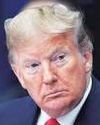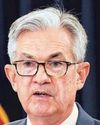
Pune district, home to over 21 sugar factories—12 of which are cooperatives—stands as Maharashtra's third-largest sugar producer, contributing 12.17 percent to the state's total output, according to the Vasantdada Sugar Institute. Once envisioned as an engine for rural empowerment, these influential sugar industries have now become a potent political tool, shaping electoral strategies and vote banks.
"Operating sugar factories is beneficial," says Ajit, a farmer and factory worker. "Workers and farmers are financially tied to the mills, which also employ people across constituencies." These intricate connections between economics and politics are sharply visible in Baramati, a hotspot for the upcoming Maharashtra assembly elections.
Here, Nationalist Congress Party (NCP) leader Ajit Pawar, contesting under the Bharatiya Janata Party (BJP)-led Mahayuti banner, is pitted against his nephew Yugendra Pawar, a Maha Vikas Aghadi (MVA) candidate backed by Sharad Pawar. The Pawars' influence over the region's sugar industry is indisputable.
The Pawars dominate the local sugar industry: Ajit Pawar's career began with his 1982 election to a sugar factory board, while Sharad Pawar's relatives—Rajendra and Rohit Pawar—run Baramati Agro Limited, a prominent sugar mill. According to a report by Maharashtra Times, the companies under Ajit Pawar have bought several sugar factories.
This story is from the November 19, 2024 edition of Business Standard.
Start your 7-day Magzter GOLD free trial to access thousands of curated premium stories, and 9,000+ magazines and newspapers.
Already a subscriber ? Sign In
This story is from the November 19, 2024 edition of Business Standard.
Start your 7-day Magzter GOLD free trial to access thousands of curated premium stories, and 9,000+ magazines and newspapers.
Already a subscriber? Sign In

Excessive financialisation can hurt economy
The Economic Survey of 2024-25, tabled in Parliament on Friday, has identified financialisation as a risk and said such a phenomenon has resulted in unprecedented levels of public- and private-sector debt in developed economies.

Balance climate action with fossil fuel investments
India's climate goals: More adaptation, less Chinese dependence

External debt remains stable amid global uncertainties
The Economic Survey noted that India's external debt has remained stable over the past few years.

Trump Repeats Tariffs Threat to Dissuade BRICS From Replacing $
President Donald Trump on Thursday warned off BRICS member countries from replacing the US dollar as a reserve currency by repeating a 100 per cent tariffs threat he had made weeks after winning the November presidential elections.

Fed, Powell on defensive as diversity effort comes under fire
Donald Trump's offensive against diversity, equity and inclusion programs is putting the US central bank in an uncomfortable squeeze.

Apple's forecast cheers investors after mixed Q1
Revenue from China slips 11% as local competition rises

Sun Pharma Q3 net up 15% at ₹2,903 cr
Rise due to domestic, emerging mkts

Incentivise public transport, not private electric vehicles
Incentivising public transportation rather than private electric vehicle (EV) production is a more viable path for energy transition and reduced carbon emissions in India, as the latter is dependent on high amounts of imports from countries like China, the Economic Survey said on Friday.

Survey outlines reforms agenda for 'Viksit Bharat'
Butterfly and Dragon becomes the talking points in the Economic Survey 2024-25. For many readers, the curiosity would be more on what the Survey says about growth and inflation outlook for FY26.
Sebi raises concerns over greenwashing by India Inc
Securities and Exchange Board of India's (Sebi's) whole-time member (WTM) Amarjeet Singh on Friday voiced concern over greenwashing and misleading disclosures related to environment, social, and governance (ESG) metrics.